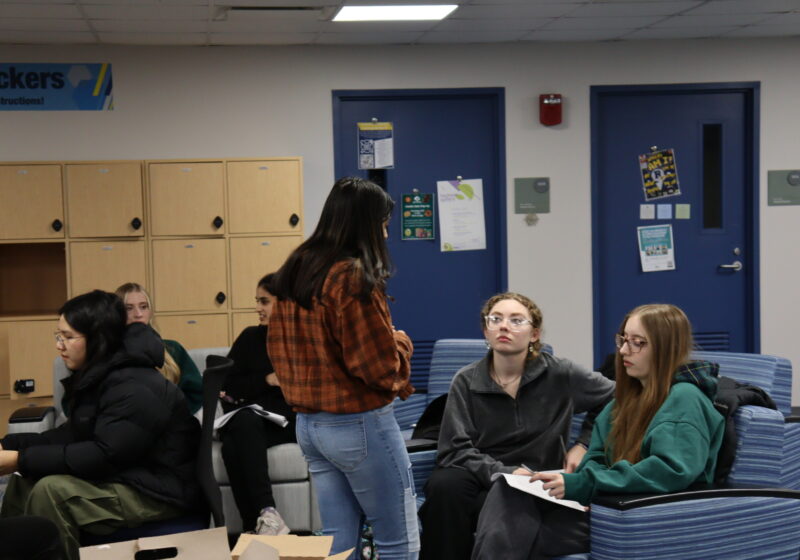“Akaawaba,” the theme of Pan African Student Association’s (PASA) Fall Showcase, means welcome in Twi, a Ghanaian dialect. The audience was enthusiastically welcomed by PASA members, accompanied by colourful lights and African music. The showcase, held Saturday night, Nov. 18, opened to constant cheers from the audiences, which lasted all night. The momentum reached a high as Axum presented their traditional East African-inspired dance routine and pulled the audience to join them on the stage.
Along with PASA’s performing committees, Ma’frisah (dance group), Axum (East African dance group), and Pasapella (Pan African Acapella group), other cultural performance groups also featured at the showcase.
The guest performers, including the Xclusive Step Team, solo rapper Karanore-Jone, the Sihir Bellydance Ensemble, and other on-campus performance groups also gained jovial reaction from the audiences.
I was so amazed by the different aspects of African diversity.” sophomore Julian Maceren said, “ My favorite was Pasapella, even though I didn’t understand the lyrics I still felt that the energy of the performers echoed to me.,”
First-year Candy Aguirre was astonished by the atmosphere of the event.
“I came here because [UR] emphasizes diversity a lot but I feel like people don’t really know much about the African continent,” she said. “The performers and people from PASA were so welcoming and enthusiastic, I felt so invited to engage.”
The motive for the annual showcases is to represent and celebrate the numerous African students’ cultures and identities. . PASA is a student association with more than 300 members representing 34 countries. Each year, PASA hosts two showcases, one in each semester. Last year, the showcase centered around East and Central Africa, while this year’s theme focuses on West Africa.
The showcase has always been an open performance led by the three PASA performing committees, Ma’frisah, Pasapella, and Axum, who have regular practices and rehearsals, and are joined by on-campus guest performers. The showcase invites and welcomes any individual or group performers to join and celebrate diversity with PASA.
When asked to comment about the success of the event, sophomore and PASA fundraising manager Bimpe Isafiade said, “We divided into groups to focus on one part of the show to make it as perfect as possible.” Isafiade also added that PASA’s performing committees were mostly dressed in traditional African clothing that were self-made by the members.
For junior and PASA President Kaps Chalwe, this is the first official welcome of African diversity in the school year.
PASA hopes that through the performances, students can gain insights into African diversity. PASA secretary and sophomore Ayobami Sanusi stressed the problem of people solidating all African cultures into one.
“We want people to enjoy African culture and see the beauty of it,” she said. “Africa is not just a country, it is a very diverse continent. We all have different skin tones, hair, and language.”
Prior to the Showcase, PASA also exhibited an art show at Havens Lounge. The show displayed photographs of different African hair styles, such as shelil, Fulani braids with beads, two shimmy, and Ghana weaving. The photographs all had informative descriptions of the aesthetic, spiritual, and social significances. The members also demonstrated how to style the different hairstyles with a model and several wigs.
Every year, PASA takes the responsibility to communicate and delivery aspects of diversity to the campus.
“This is why the event is free, so that everyone can embrace the idea of diversity and doesn’t have to be restricted by financial reason,” Chalwe said. “I don’t want people to leave this university without any knowledge of Africa.”





